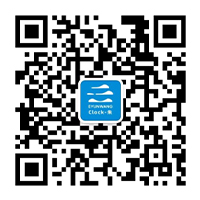

Concordia International School Ningbo Technology Use Policy
Purpose
The purpose of this Technology Use Policy is to ensure that technology resources at Concordia International School Ningbo are used in a manner that is safe, responsible, ethical, and aligned with the educational objectives of the International Baccalaureate (IB) Primary Years Programme (PYP). This policy outlines expectations for all members of the school community regarding the use of technology and digital resources.
Scope
This policy applies to all students, faculty, staff, and other members of the school community who use technology resources provided by Concordia International School Ningbo, including computers, tablets, internet access, online platforms, and digital content.
Principles
Our approach to technology use is guided by the following principles:
- Supporting Learning: Technology is used as a tool to support and enhance learning, encouraging creativity, critical thinking, and inquiry.
- Digital Citizenship: Users of technology demonstrate respect, empathy, and responsibility in digital environments, understanding the impact of their actions online.
- Safety and Security: Measures are in place to protect users from potential risks associated with technology use, including cyberbullying, exposure to inappropriate content, and data breaches.
- Ethical Use: Technology is used ethically, respecting intellectual property rights and the privacy of others.
Guidelines for Responsible Use
- Acceptable Use: Technology resources must be used for educational purposes and activities that support the school's mission and curriculum.
- Privacy and Security: Users should maintain the confidentiality of personal information and respect the privacy of others. Strong passwords must be used and never shared.
- Cyberbullying and Respect: All members of the school community must use technology in a respectful and empathetic manner. Cyberbullying in any form is strictly prohibited.
- Intellectual Property: Users must respect copyright laws and intellectual property rights, using and citing content appropriately.
- Network Security: Deliberate actions that compromise the security of the school's technology resources are prohibited.
Roles and Responsibilities
- School Leadership and IT Department: Ensure the availability of appropriate technology resources, maintain network security, and provide guidance and support for technology integration into teaching and learning.
- Teachers: Integrate technology responsibly into the curriculum, model appropriate technology use, and supervise student use of technology.
- Students: Use technology resources responsibly, follow the guidelines for acceptable use, and report any issues or concerns to a teacher or staff member.
- Parents: Support the school's technology use policy by promoting responsible use of technology at home and discussing online safety with their children.
Digital Literacy and Citizenship Education
- Curriculum Integration: Digital literacy and citizenship are integrated into the curriculum to equip students with the skills needed to navigate the digital world safely and responsibly.
- Professional Development: Staff receive ongoing training on the effective and ethical integration of technology into teaching and learning.
Monitoring and Enforcement
- Monitoring Use: The school reserves the right to monitor technology use to ensure compliance with this policy.
- Consequences of Violations: Violations of this policy may result in disciplinary action, including, but not limited to, restricted access to technology resources, confiscation of devices, and other sanctions deemed appropriate.
Review and Development
This policy is reviewed annually to ensure it remains relevant and effective in the light of emerging technologies and evolving educational practices. Feedback from the school community is encouraged and considered in the review process.
Communication
This policy is communicated to all members of the school community through the school website, parent and student handbooks, and staff meetings, ensuring everyone is informed.
All policies need to be collaboratively developed, well-documented, communicated to all stakeholders, and regularly reviewed and updated to reflect changes in the school community or IB standards. It's also important to keep these policies aligned with local educational regulations and cultural expectations in Ningbo.
Concordia International School Ningbo serves students from age 3 to age 18 and provides a rigorous, globally focused education that fosters inquiry, knowledge empathy, and nurtures a lifelong love of learning.
Concordia International School Ningbo
+86(0)574 8807 6699
No.18 Guangfu street,Yinzhou District,Ningbo
Concordia International School Ningbo All right reserved.

朱经理
86-139-8933-7302